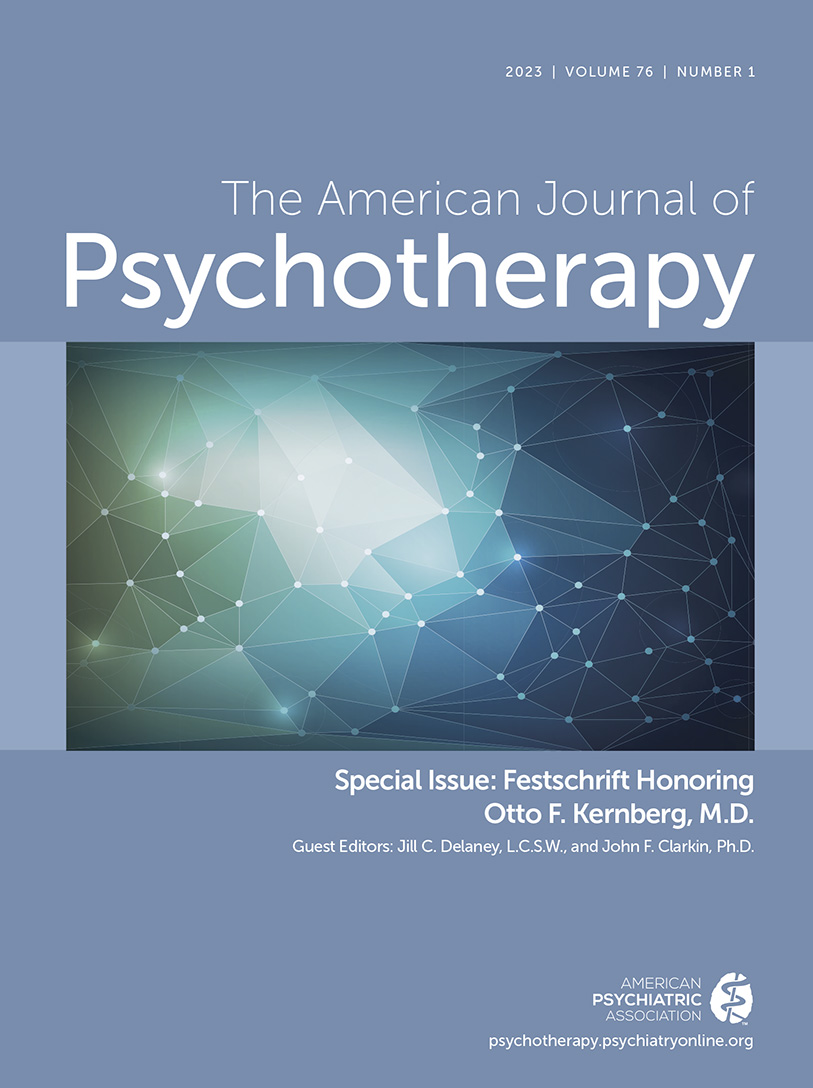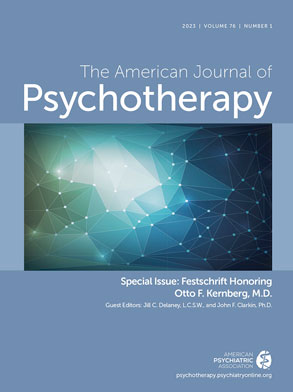Editing this compendium in tribute to Otto F. Kernberg, M.D., and his work has been a great pleasure. Dr. Kernberg has made enormous contributions to the study of psychiatry, psychoanalysis, object relations theory, personality organization, and severe personality disorders. He is a world-renowned psychiatrist and psychoanalyst, a passionate teacher and lecturer, a hospital administrator, and a scholar.
Born in Vienna, Kernberg fled Nazi Germany in 1939 with his family and immigrated to Chile, where he completed his medical and psychoanalytic training. He first came to the United States in 1959 on a Rockefeller Foundation Fellowship to study research in psychotherapy with Jerome Frank at the Johns Hopkins Hospital. Dr. Kernberg returned to the United States in 1961 to join the C. F. Menninger Memorial Hospital in Topeka, Kansas, where he later became director of the hospital until 1965. During this time, he was also the codirector of the Psychotherapy Research Project of the Menninger Foundation, along with Robert Wallerstein. Dr. Kernberg’s work at Menninger became the foundation of his lifelong interest in psychotherapy research and severe personality disorders, particularly in the understanding and treatment of borderline personality and narcissistic personality disorders. His integrative writings have been central to the development of modern object relations, a theory of mind that is perhaps the most widely accepted among modern psychoanalysts, and his principal contributions have been in the fields of narcissism, object relations theory, and personality disorders. Dr. Kernberg developed a novel and useful framework for situating personality disorders along dimensions of structural organization and severity. In 1995, he cofounded the Personality Disorders Institute, which was established by Cornell University’s Weill Medical College so that he might continue his work in the field upon retiring as medical director of New York Hospital (1976–1996), and served as director of the institute from its inception to 2022. His writings have educated, enlightened, and inspired generations of mental health professionals throughout the world.
From his earliest days at Johns Hopkins, Dr. Kernberg has argued that our understanding and treatment of psychopathology must be rooted in theory and empirical research. The articles in this special issue were written by senior colleagues who have been fortunate to benefit from their long-standing collaboration with him. Carla Sharp and John Oldham (
1) describe the recent paradigm shift in the diagnostic approach to personality pathology by the American Psychiatric Association, as reflected in
DSM-5, and emphasize the profound influence of Dr. Kernberg’s theory of the primacy of an integrated sense of self to personality organization. Lina Normandin and colleagues (
2) describe the contribution of Dr. Kernberg’s object relations model to the understanding of personality disorders and their presentation and development in adolescence. Dr. Kernberg’s emphasis on the role of affects in the formation of self-other representations, their elaboration and modification through development, and the expansion of these operations in adolescence to sexuality, morality, autonomy, and other areas is considered. The status of the individual’s identity integration is used to describe different adolescent developmental pathways (i.e., typical identity development, identity crisis, identity diffusion) on the basis of features such as maturity of defenses; integration of morality; and a clear, organized sense of self. Current understanding of the technical aspects of the trajectory of personality pathology in adults is explored by Mark Lenzenweger (
3). Eve Caligor and colleagues (
4) explain the basics of Dr. Kernberg’s object relations theory and the contribution of this theory to understanding human behavior. By using Dr. Kernberg’s theory of object relations, Caligor and colleagues have developed a measure by which to reliably assess a patient’s quality of object relations, degree of identity integration, defensive structure, and severity of pathology. Diana Diamond and colleagues (
5) illustrate the connection, as posited by Dr. Kernberg, between object relations theory and attachment theory with empirical work on reflective functioning. John Clarkin and colleagues (
6) trace the empirical exploration of object relations theory and the development of transference-focused psychotherapy (TFP) into a transdiagnostic therapeutic approach to personality pathology. Frank Yeomans and colleagues (
7) describe the methods of teaching and supervising TFP that have been instituted in psychiatric residency settings, analytic training institutes, universities, and professional settings that have become centers of excellence in TFP treatment around the world. In a remarkable display of Dr. Kernberg’s current thinking on a wide range of subjects, please see Stephan Doering’s review (
8) of Kernberg’s most recent book,
Hatred, Emptiness, and Hope: Transference-Focused Psychotherapy in Personality Disorders.
The breadth and acuity of Dr. Kernberg’s prodigious contributions to our field cannot be adequately covered in this brief volume, which is a mere sampling of the theoretical and empirical elaboration inspired by his lifelong pursuit of understanding the human condition.

